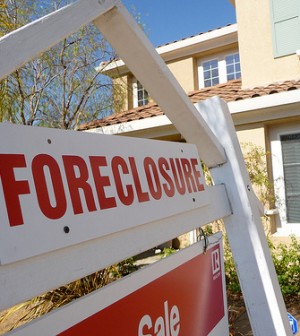- Can Your Kids Sue You for Putting Baby Photos on Facebook?
- Woman Sues Starbucks for $5M Over Too Much Ice in Its Drinks
- Lyft Settlement rejected by Judge Chhabria
- RackSpace Hosting - Class Action Investigation
- Nexus 5 WiFi Problem Investigation
- How to Lemon a Car
- Ashley Madison Hack Leads to a $578 Million Class Action Lawsuit
- Touch Of Modern Being Sued for SPAM
- Do You Trust Doctors More Than Lawyers? Here’s Why You Shouldn’t
- Uber’s $250,000 Campaign Contribution to Eric Garcetti Might Be Holding The Mayor Back
What You Should Know When Foreclosure Threatens

Very few people make a deliberate decision to just stop making their mortgage payment. Defaulting on a home loan is typically the result of circumstances beyond the control of the borrower, such as loss of income or significantly increased expenses.
When you’ve missed several payments in a row, typically three or more, a mortgage lender may decide to begin the process of foreclosure. This entire process is one that most homeowners and lenders alike would prefer to avoid whenever possible, but it does occur nonetheless.
Avoiding Foreclosure
In most states, you won’t be in danger of foreclosure if you’re only a month behind on payments, although it can adversely affect your credit score. That fact works to your advantage. The moment you see that you are struggling to get that payment in on time, it’s a good idea to talk to your lender.
There are many programs, both government-funded and lender-run, that can help you avoid foreclosure. For example, if you are having trouble keeping up because of an unemployment that was no fault of your own, you may qualify for the federally funded Hardest Hit program.
If there are no assistance programs for which you qualify, your lender may agree to a loan modification or repayment plan. If your loan is modified, you may need to sign new loan documents like you did at your original closing. You may be able to do all of this through the mail, but some documents may need to be notarized. A nationwide notary signing service can help you with this.
Generally speaking, as long as you stay in touch with your lender and show a real effort toward getting back on track, your lender will be willing to work with you. If, on the other hand, you simply stop making payments and fail to make contact with your lender, the lender must assume that you have no intention of bringing the loan to current.
If your loan reaches 90 days or more past due, the lender may issue a breach letter stating the total amount that must be paid by a certain date. If this amount is not paid or arrangements are not made to pay it, foreclosure proceedings may begin.
Your Rights During Foreclosure
Foreclosure laws differ from state to state, so only a qualified attorney in your state of residence can tell you your specific rights. There are some rights, however, that are fairly universal across the nation.
You have the right to be notified of a pending foreclosure. In fact, if you can prove that you were not properly notified, the courts may put a stop to the proceedings altogether. That does not mean that the lender loses its right to foreclose, only that it must begin the process over again. For that reason, most lenders will send multiple notices, and some may send notices via certified mail to prove that you were indeed aware of the situation.
You also have the right, in many states, to redeem your property. This provision allows you to purchase your home back from whoever bought it at the foreclosure sale for the amount of the sale plus certain fees. The problem with this is you will have to pay cash for it, so you’ll either have to come up with the money yourself or convince another lender to grant you a loan. The redemption period can vary from just a few days up to up to one year.
If you feel that your rights are violated at any time, then you have a right to file a grievance. An attorney can help you through this process, and you can instigate a claim at any time during or after the foreclosure procedure.






You must be logged in to post a comment Login